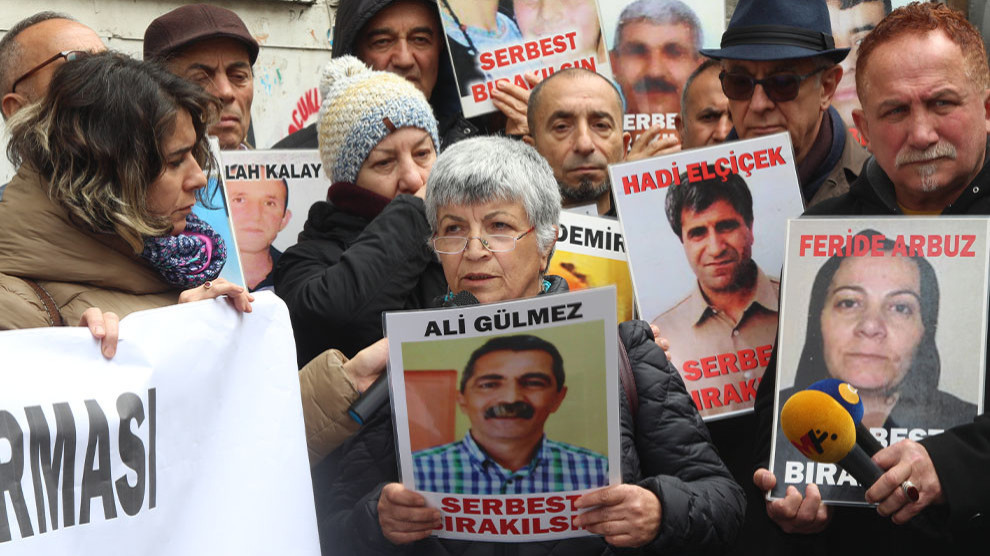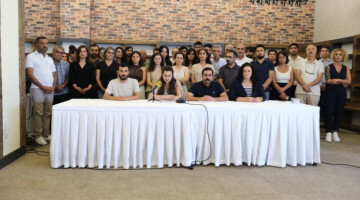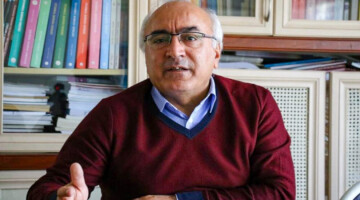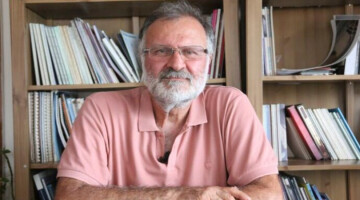According to the latest figures of the Human Rights Association (IHD), there are currently 1,333 sick prisoners in Turkish prisons, 478 of whom are critically ill. In 2019, 63 people - 30 of them seriously ill - died in prison. Since the AKP came to power in 2002, 3,500 prisoners have died. The figures document the dramatic situation in Turkish prisons.
In order to draw attention to the situation of sick prisoners, activists of the IHD Prison Commission organize an "F-session" every Saturday in the Turkish metropolises Istanbul, Ankara and Izmir - denouncing the Turkish prison system type F. At the vigils, the fate of a prisoner is discussed every week in order to sensitize the public.
In Istanbul today the 414th F-session took place. The sit-in could not be held on the traditional Galatarasay Square. Saturday Mothers have also been barred from accessing the square in the pedestrian zone Istiklal Avenue for a year and a half. Instead, the vigil was held in front of the Human Rights Association (IHD) branch in the small side street Çukur Çeşme.
This week’s demo was dedicated to 51 years old Ali Gülmez. The political prisoner has been imprisoned for 21 years in different prisons in Turkey and Northern Kurdistan. At the moment he is imprisoned in the F-type prison in Bolu. The prisoner, who was sentenced to an aggravated life sentence, was transferred there from the high security prison Edirne. In Edirne, Gülmez fell ill with a chronic inflammation of the intestines. Since then he has been suffering from diarrhoea, blood leaking from the intestines and permanent stomach pains. He is also plagued by kidney stones and a number of urological diseases. The humid climate in Bolu also poses additional problems for the asthma patient.
Gülmez himself has to pay for the drugs urgently needed for his treatment, as the Ministry of Health does not cover them. In general, access to health in Turkish prisons is severely restricted and there is virtually no health care for political prisoners. Despite the fact that Turkey is committed to the principle of "health for all", which the World Health Organization took up as its flag when it was founded, systematic violations are taking place in the prisons. The problem particularly affects political prisoners and imprisoned journalists. Sevim Kalman, the representative of Ali Gülmez, also points out the more difficult conditions of sick prisoners in solitary confinement. Inhuman measures and death of the sick prisoners have become the norm.
The IHD has been demanding the release of Gülmez for years. A release of seriously ill prisoners is required by law anyway. However, the Turkish judicial authorities refuse to do so in most cases. The Prison Law completely blocks the chances of release for prisoners jailed for political reasons, as it states: "If the prisoner's life is threatened by imprisonment due to a serious disability or illness, the prison sentence may be suspended, provided it is determined that the prisoner does not represent a danger to public safety.” This means that this law does not apply to sick political prisoners, who are usually sentenced under the controversial anti-terrorist laws.














